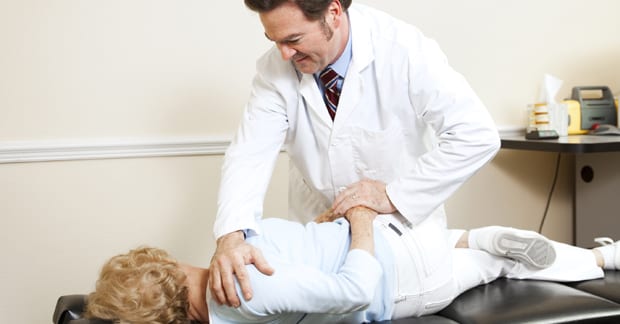We want to do the things that promote and speed healing and not do the kinds of things that cause more harm or are destructive. A lot of us know that a little rest when we injure the back is okay, but staying in bed for a week might not be a good idea. Studies have shown that bed rest for more than two days causes even more pain. Since our goal is to move, then lying down doesn't seem like a worthwhile step towards that goal.
Some of us know that when the back flares up, ice is better than heat. Some of us still don't, and instead throw gasoline on the inflammation fire by having a soak in the hot tub.
These things are obvious on the list of DOs and DON'Ts for the person with low back pain.
It seems like taking a pill for few days to help with pain is reasonable enough. Right? Maybe wrong.
For example, certain NSAIDs (e.g. ibuprofen) can make the scar formation in a muscle strain less effective. Instead of the scar properly forming, it does so in a more disorganized or scrambled fashion. If you have a poorer scar, the tissue will not be as strong and could lead to re-injury or a delay in your recovery. We don't think about it but just not taking pain pills early on would help for a lifetime. Ice can be an effective pain killer and doesn't come with medication-related side effects.
Muscle relaxants are also prescribed for people with back pain. They are consumed by 49% of patients. The theory is that the muscle spasm should be relieved so that there can be less muscle pain. A study of patients who took muscle relaxants showed that these sufferers recovered more slowly. Unfortunately, the muscle spasm is there for good reason: to protect a delicate nerve.
Another thing that you have to consider besides poor scar formation and slowed healing, is the actual purpose of these medications. You have to also ask yourself why your body wants you to feel this pain. The body wants you to protect the area from movement. If you block the pain with medications, you may move too much or too soon in the healing process, delaying your recovery.
A study that compared chiropractic adjustments to muscle relaxants in patients with low back pain had interesting results. There was also a sham adjustment group and a placebo medicine group. The authors concluded that chiropractic care had superior results.
Your chiropractor can help guide you to when you can return to certain work or sports. By gradually integrating exercises into your daily routine as the function of the joints is improved, your injury can heal more naturally.



